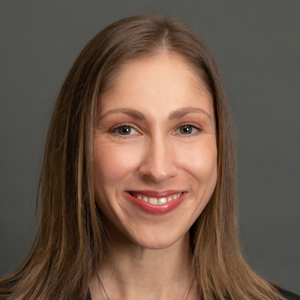In the Words of Direct Care Workers: Culix Wibonele
As part of our new report on the direct care workforce, we’ve been speaking with direct care workers from around the country, drawing on their wisdom and experience to help inform the future of this sector. Our first interview is with Culix Wibonele, a Care Partner at Park Springs in Stone Mountain, Georgia. She has been a direct care worker for six years.
 ON WHY SHE DECIDED TO BECOME A CERTIFIED NURSING ASSISTANT
ON WHY SHE DECIDED TO BECOME A CERTIFIED NURSING ASSISTANT
“I followed in the footsteps of my mom, who is a CNA [Certified Nursing Assistant]. I grew up in Kenya where we did not have senior living homes. When our relatives get older there, they move in with us or we stay with them. Coming here, it is such a different culture to take your loved ones somewhere to get taken care of until they pass. So when I would hear about my mom’s job, it was a little bit strange to me, but intriguing, too. I thought, ‘This is like being home, but you get paid for giving care.’ It felt natural. I used to work as a salesperson and a cashier. From there, I went to school to become a dental assistant. That job was good, but something was still missing. I’m a hands-on person and I wanted something where I would be engaging people and helping them. So I decided to become a CNA. I feel like this is my calling. I am joyful when I go to work in the morning now. With Park Springs, it feels like I am going to my second home.”
ON WHAT SHE FINDS MOST CHALLENGING IN HER ROLE
“Many CNAs do not get paid enough. You have a lot of responsibility taking care of members. You are giving medication. You are doing laundry. You are feeding them. You are giving them a shower. You are making sure they don’t fall. You are also taking care of their family members and answering all their questions about their loved ones. We are the eyes and ears for these members, and we know what is going on with them 24/7 more than anybody else. This job can be stressful, and when you are not earning enough money to make ends meet, many people leave to find better pay.”
ON HER RELATIONSHIP WITH HER CLIENTS
“Instead of calling them residents or patients, we use the word ‘member’ at Park Springs because they are members of our family. We talk to them, we hold hands, we do activities, we sit and have a meal with them. We also give them options about their day. For example, if they are not ready to get up in the morning, we give them more time to sleep because that is their right. When they get up when they are ready, they are not cranky. They are not sleepy. They are alive. They are happy. Our members appreciate the simple things we sometimes take for granted. When they tell me, ‘Thank you for the hug,’ or ‘Thank you for smiling,’ I know I did something right to make them happy and that makes my day.”
Read our new report, It’s Time to Care: A Detailed Profile of America’s Direct Care Workforce >>






